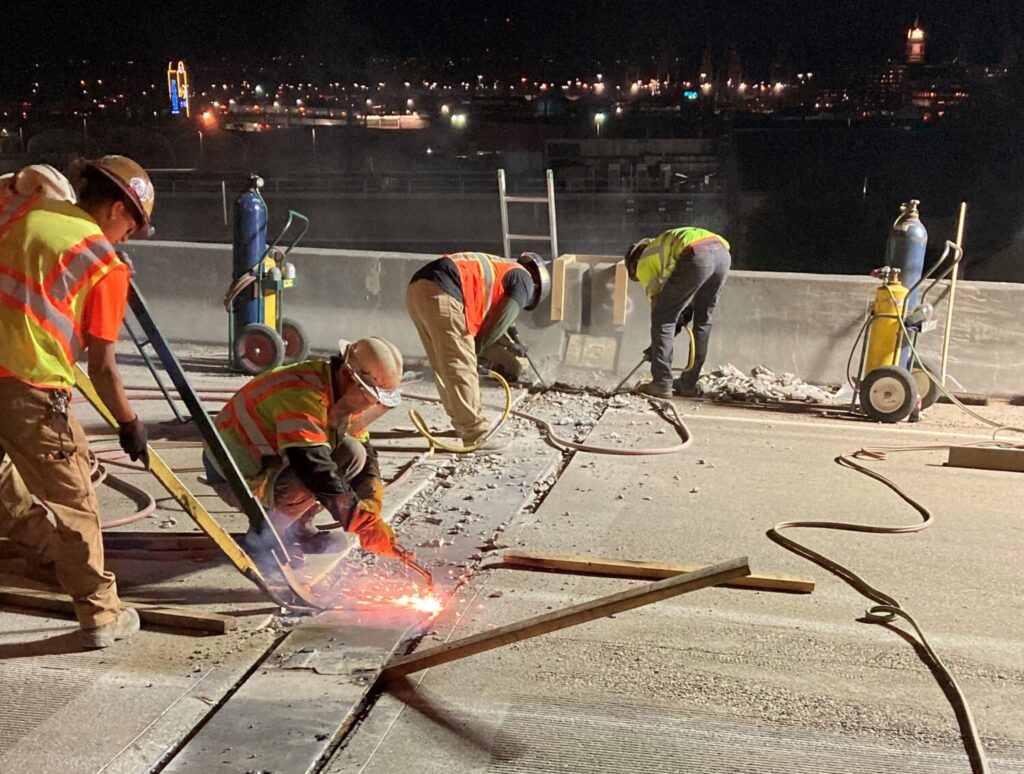Capital Chatter: What happens to ‘dead’ climate bill?
Published 7:00 am Thursday, August 1, 2019

- Capital Chatter: The real reason that HB 2020 failed
What happens next with House Bill 2020, the climate change bill?
In one sense, nothing. The bill is legally dead, having passed the Oregon House but not the Senate. As Sen. Michael Dembrow, D-Portland, explained at a recent constituent coffee and in his newsletter this week, bills do not carry over from one legislative session to another.
Trending
But concepts and wording do. Dembrow is working with the governor’s office and others on a revised version to introduce in the legislative session that convenes in February. That carbon cap and invest legislation will be assigned its own bill number.
In his newsletter, Dembrow wrote: “We’re taking advantage of this delay to look at several ways to improve the bill. We’re listening to the specific concerns expressed by opponents of the bill from all over the state. We’re considering recommendations for improvement from supporters of the bill. We’re working on ways to be clearer and more specific about its positive impacts on the state as a whole, while addressing concerns about the economic effects of the transition to a lower-carbon economy.
“It became clear at the end of the session that we need to be more explicit about the specific projects that the program would fund, the kinds of jobs they would be creating, and the way that they would be furthering the program’s four key elements: emissions reduction, adaptation/resiliency, sequestration, and just transition. I’ll be sharing those specifics with you soon.”
The above paragraph hits a key point: Good ideas rarely sell themselves. Ideas must be marketed to the target audience, which starts with understanding the needs, goals and desires of the target audience.
“Marketing” is not a bad word. People need to know how legislation will affect them – from their perspective. There’s a huge difference between saying, “this will create green jobs” and giving specifics about the expected jobs, including their locations and salaries. Those specifics should be based on the worst-case scenario, not the most-optimistic one.
The lack of specificity and seeming over-optimism fed rank-and-file opposition to the bill. Proponents provided a lot of information. But it didn’t seem to resonate with what people wanted to know and what they feared might happen to their communities, their jobs and their household economics.
Trending
Oregon in national news : Dembrow and Rep. Karin Power, D-Milwaukie, were the co-chairs of the legislative committee handling HB 2020. In her newsletter this week, Power wrote: “After months of work and just days after the House approved the bill, 38-22, House Bill 2020’s failure to advance due to the second Senate Republican walk-out was profoundly disappointing. I’m grateful to the thousands of Oregonians who have spoken up, advocated, organized, and compromised to arrive at what Vox’s top national energy reporter, David Roberts, called ‘a huge deal.'”
The Vox article said, “Oregon is attempting to demonstrate that a smaller state can join California’s trading system and adopt California’s climate policy model, while still customizing that model to its own unique needs.”
Writing about legislative accomplishments, Power also highlighted a Los Angeles Times article, “Oregon vowed not to become California — and passed sweeping housing crisis legislation.”
The governor speaks: Gov. Kate Brown also was in the national spotlight this week. She and former Missouri Gov. Bob Holden highlighted a Brookings Institution forum in Washington, D.C., on how states and local governments are working with China. The theme was that U.S.-China relations are too important to be left solely to the nations’ leaders.
In introducing Brown, moderator James Fallows said Oregon has important roles as a trend-setter in public policy and as a state that engages across the Pacific.
Brown noted that small states often are called the laboratories of democracy, adding, “I like to call us the petri dishes of progressive public policy, and that is exactly what we are doing.”
She said Oregon is one of four states whose largest trading partner is China.
Days earlier, Brown made headlines at the National Governors Association Summer Meeting, which was held in Salt Lake City, Utah.
Politico reported that Democratic governors attending the conference were worried that their national party was losing its direction and potentially enabling President Donald Trump’s re-election.
The Politico article said: “Oregon Gov. Kate Brown, when asked if impeachment talks are beneficial for Democrats politically, said, ‘We should be focused on what Americans care about and what Oregonians, for me, care about, right? Making sure we have good quality jobs, that we have an education system we can be proud of and that everyone in the state has access to health care. … We saw in 2018 that when we talked about health care, we won, and we won handily. I mean, we kicked their butts.'”
What got more attention in Oregon were two paragraphs about Brown far down in the article:
“‘With the current occupant in the White House, it’s really clear that all types of misbehavior are being tolerated,’ Brown said, calling her state’s Republican walkout a ‘subversion of democracy.’
“She said Republicans’ ‘actions will haunt them over the next decade.’ When asked if she planned to veto bills in retribution, Brown said, ‘I will just say … revenge is a dish best served cold and slowly.'”
Coming together outside Salem: Given the distrust and discouragement with which the 2019 Legislature adjourned on June 30, lawmakers and onlookers have said time is needed for healing.
This year’s Oregon Coastal Caucus Economic Summit offers an opportunity for renewal and reflection on bipartisan concern. The summit is sort of like a think tank, in that legislators, local elected officials and civic leaders, academicians, business executives and others come together to discuss issues of coastal importance but ones that also resonate throughout Oregon.
This year’s theme is “Infrastructure Investments: A Collaborative Approach.” The free conference will be held Aug. 21-22 in Florence, with sessions at the Three Rivers Casino and the Florence Events Center.
Sen. Arnie Roblan, D-Coos Bay, explained why this matters.
“Coastal Caucus members emphasize building a bridge between the urban and rural parts of the state by convening this economic conversation every year,” he said.
“We have a lot of difficult questions to address about a variety of issues so that coastal Oregon and other rural communities in the state can revitalize their economies and continue to grow. This event is an opportunity to bring people together from all parts of the state and all walks of life to have those conversations and find common ground that brings us together so we all can benefit.”
Water will be a key topic. Meta Loftsgaarden, executive director of the Oregon Watershed Enhancement Board, and Tom Byler, director of the state Water Resources Department, will discuss Oregon’ s 100-year vision for water infrastructure.
The coastal caucus comprises Rep. David Brock Smith, R-Port Orford, chair; Sen. Betsy Johnson, D-Scappoose; vice chair; Sen. Dallas Heard, R-Roseburg; Rep. Caddy McKeown, D-Coos Bay; Rep. David Gomberg, D-Otis; Rep. Brad Witt, D-Clatskanie; Rep. Tiffiny Mitchell, D-Astoria; and Roblan.
Side note: Thinking about the summit inspired me to avoid I-5 and drive down the Washington and Oregon coasts when returning home last week after apartment-sitting for our daughter in the Tacoma area. It took more than twice as long but was far more enjoyable than sitting in Friday afternoon freeway traffic.
Dick Hughes, who writes the weekly Capital Chatter column, has been covering the Oregon political scene since 1976. Contact him at TheHughesisms@Gmail.com , Facebook.com/Hughesisms, YouTube.com/DickHughes or Twitter.com/DickHughes.





